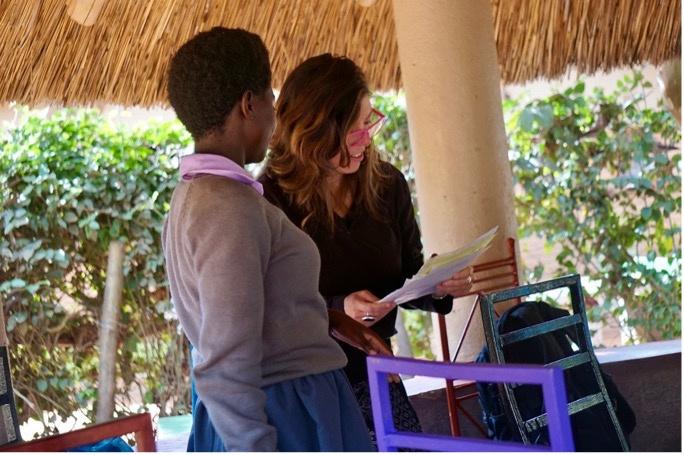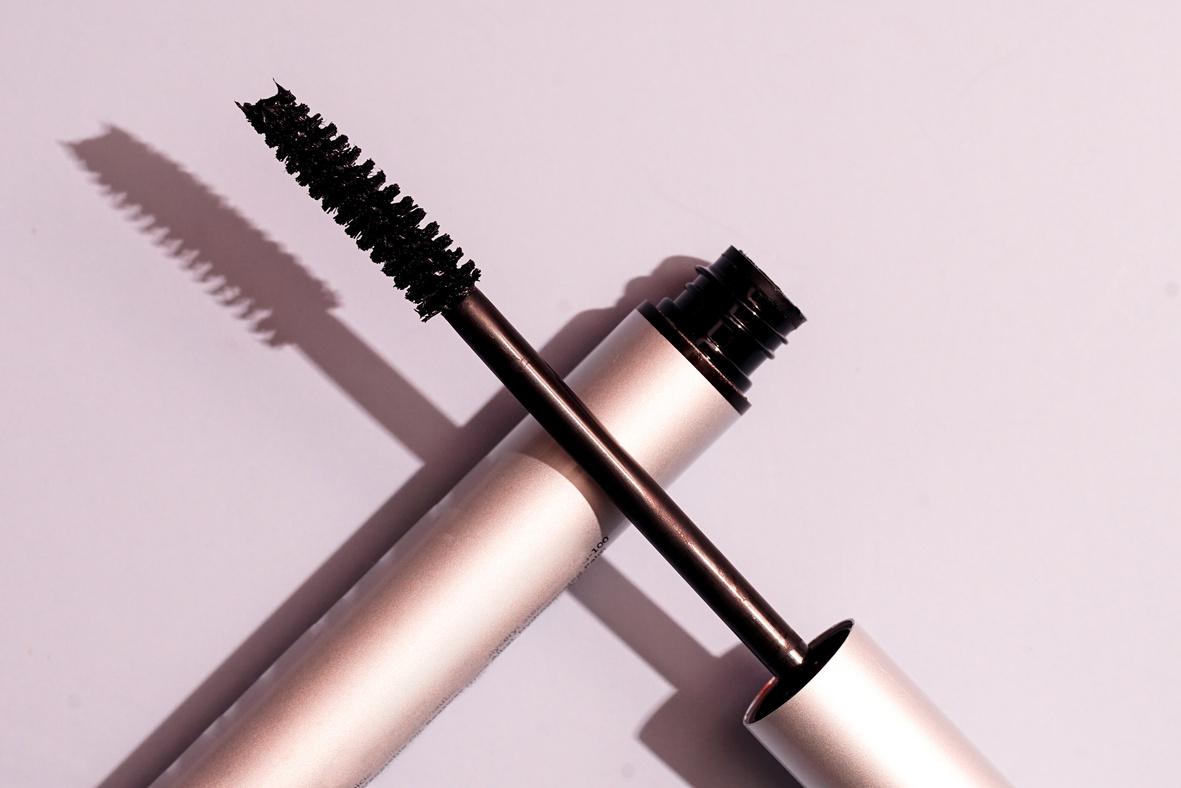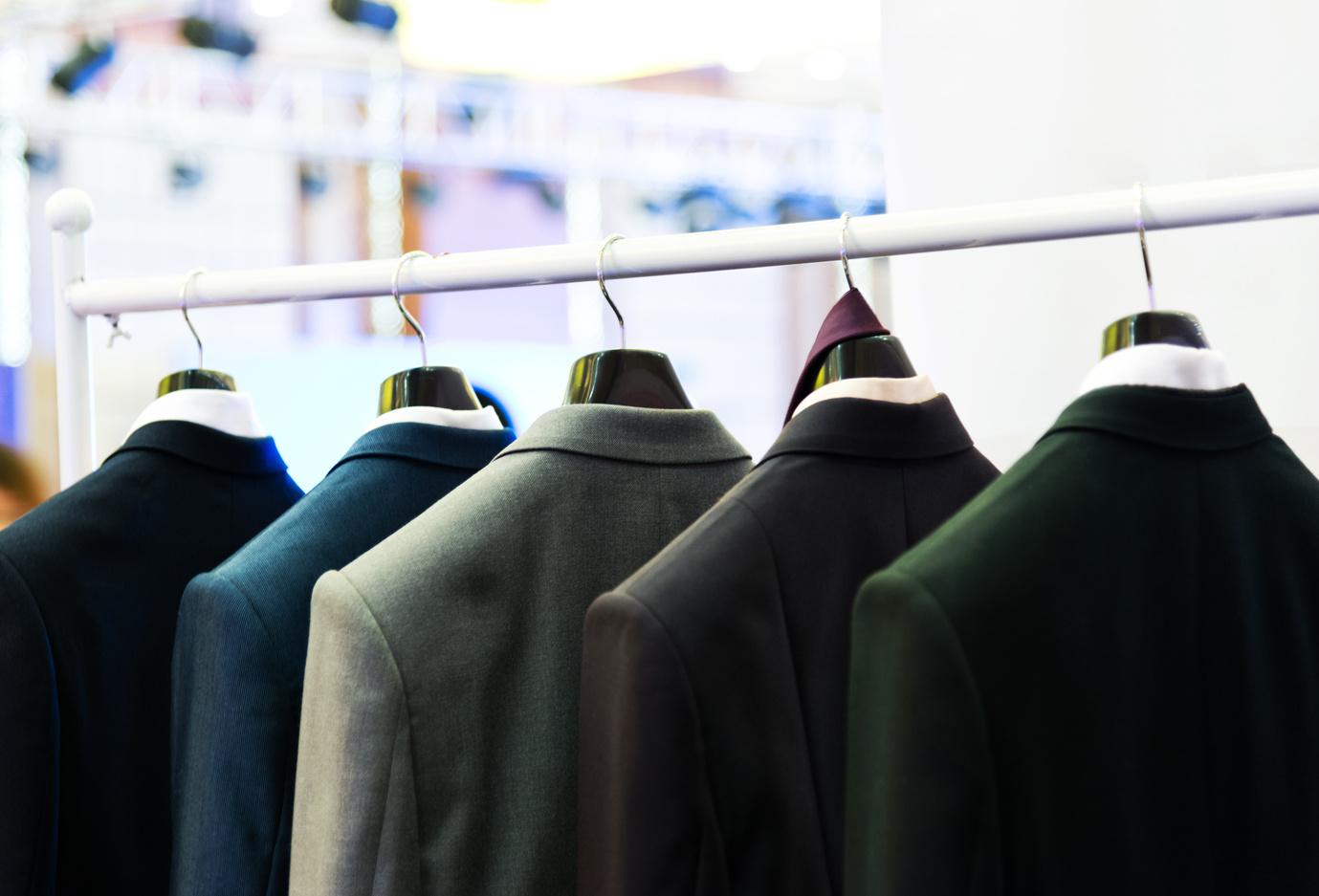




WhenImadethelifealteringdecisiontoapplytolawschool,IknewthatIwasfacingan uphillbattle Southwesternmadethattrekanabsolutebreeze
Priortoapplyingtolawschool,Iwasonadifferentpaththatwouldhaveledmetomedical school.AsIgrewolderandthechallengesaroundmeevolved,Irealizedthatcareerpath wasnotforme Itookaleapandmadethedecisiontoapplytolawschoolin2020 WhenI appliedforadmissiontoSouthwestern,Iwaswaitlisted.IrecalltheexactmomentIgota callfromtheAdmissionsOfficeinformingmethataspartofthewaitlistprocess,Ihadthe opportunity to interview with Professor Catherine Carpenter. When I got the waitlist notification,Iwasextremelydisappointed Astheoldestdaughteroften,therearecertain pressuresandresponsibilitiesthatinformeverydecisionImake.Somedaysthepressureis crippling.However,IknewthatthisinterviewwasmyonlychancetoshowSouthwestern thatdespitemyLSATscore,Iwasworthyofthisopportunity.Iimmediatelystarteddoing research and preparing for the interview I wholeheartedly believe that but for the opportunitytointerview,IwouldnotbewhereIamtoday-abouttograduatelawschool!
Thank you, Professor Carpenter, Dean Gharakhanian, Dean Rodriguez, and the entire SouthwesternAdmissionsOfficeforacknowledgingthatstudents,likeme,aremorethana numberonacurve.Wehaveperspectivesandlifeexperiencesthatcanaddvaluetothe legalprofession.Thelawisapowerfultool,andIfeelprivilegedtobegraduatingtopofmy classfromaschoolthatvaluesitsstudentsandstrivestocreatewell-roundedlawyers. Southwesterngavemetheconfidencetochallengethestatusquoandtakeupspacein rooms that have systematically shut out people like me. Less than 2% of the legal professionismadeupofLatinas,andIameagertojointhatuniquegroupofwomen.
InlessthantwomonthsIwillbethefirstpersoninmyfamilytograduatefromcollegeand obtainaJDdegree.Myaccomplishmentsarenothingshortofamazing.Mymomwasfifteen yearsoldwhenIwasborn,sotrustmewhenItellyouthatthislifewasnotinthecardsfor me.DespitethemanychallengesIhavefaced,Ibelievethatwithahumbleheart,anda wholelotofhardwork,thereisnothinginthisworldthatwecannotaccomplish.
Sincerely,
DesireeRuizAlfaro
Members of our SW community, both faculty and students, are making an impact outside of the classroom. Follow along to learn about their journeys.
In her spare time, Carmen volunteers at Heart of Los Angeles (HOLA), a non-profit organization located around the corner from Southwestern.
Carmen Palao is originally from Los Angeles, CA. She attended UC Davis and is currently a 2L at Southwestern.
Carmen plans on practicing immigration law and will be working at an entertainment immigration firm this summer In her spare time, Carmen volunteers at Heart of Los Angeles (HOLA), a non-profit organization located around the corner from Southwestern HOLA provides a plethora of after-school programs and resources for under-resourced communities Additionally, Carmen is the Inaugural Board Fellow for HOLA’s Board of Directors. Carmen says, “ as a Board Fellow I provide valuable feedback to the Board, with the perspective of someone who grew up in the community they aim to serve. As a volunteer, I assist high school seniors with their college applications. Many of these students will be the first in their family to attend a university.”
Carmen got involved with HOLA as a high school junior through the same program she now volunteers for Carmen says, “I knew I wanted to pursue higher education, but I attended an under-resourced LAUSD school I sought out HOLA because I knew they could help me with college applications HOLA helped opened the door to higher education and I have been involved with them ever since I have been a mentor, panelist, Board Fellow, and volunteer. Although none of these positions are directly related to law, they allow me to give back to the community that I come from. I am able to advocate for community members and teach them how to advocate for themselves. HOLA will always have a special place in my heart.”
If students wish to get involved in any capacity, they can contact Carmen directly at cpalao21@swlaw.edu and she will share more information


Adam “Double A” Arnold is a 2L traditional day student at Southwestern. While at Southwestern, he has been working toward the Entertainment and Media Concentration One of his primary goals after graduation is to advocate for artists as a music lawyer Southwestern was always on his radar because of its established entertainment law program, but he says “the community here is great too Everyone wants to help each other succeed.” Prior to law school, Adam was working as a musical recordist and a DJ. He ended up deciding to go back to school and graduated with a B.A. in Music Studies from UC Santa Barbara. He says, “I really enjoy being a dot connecter and putting great artists together, and now through my Southwestern education, I’ve been learning how to advocate on their behalf and negotiate and draft agreements As Professor Greene says, never too early to get clients I still have a few semesters to go, but the knowledge I’ve obtained at Southwestern has allowed me to help an up-and-coming artist here in Los Angeles His name is Shaun Cruda He and I have been friends forever, and as I started to learn more about the law and the industry, we decided to release some of his music together. After a year and a half at Southwestern, I have a better understanding of the various income streams of the recorded music, and I’ve been able to help him capitalize on them. I call it beatstrumental groove music – high-quality grooves ”
Connect with these artists on Instagram! @ShaunCruda, and Adam at @Craftygrooverec
One of his primary goals after graduation is to advocate for artists as a music lawyer.
Alexandra D'Italia, or how many know her, Professor D'Italia, has been a professor at Southwestern in some capacity since 2006. Right now, she teaches Advanced Legal Writing, Moot Court Honors Appellate Advocacy, Women and the Law, and Remedies She is also the Writing Center Director, founder of the Storytelling Project, and Co-Director of the Moot Court Honors Program
Prof. John Heilman, another Southwestern professor, introduced Professor D'Italia to the Jacaranda Foundation. The Jacaranda Foundation’s mission is to educate underprivileged children in Malawi and to provide them the tools to help them realize their potential. Jacaranda began as a school for orphans of the AIDS crisis, but it’s grown to be so much more In addition to the school, which currently educates about 400 students, there is a vocational school, a preschool, a physiotherapy community clinic, a school medical clinic, a home support program, an arts program, and a women ’ s entrepreneurship program, among others Just imagine if you were to build a community from the ground up with education and basic needs as its core.
Professor Heilman sits on the Foundation’s board and he sent D'Italia's travel writing to the founder of the school, Marie Da Silva Marie invited Professor D'Italia to go on adventure- visit Jacaranda and write about her experience She excitedly accepted, and as soon as she arrived, she was struck by the creativity everywhere not just in the murals, the music, and the dance, but in its very operation She asked Marie what she could do and they quickly brainstormed. She got to be creative! And so, Jacaranda Writes, both the writing club and resulting literary journal were born. Marie Da Silva and Luc Deschamps are the doers, dreamers, believers, and activists who make Jacaranda a place where community rises.

"Just imagine if you were to build a community from the ground up with education and basic needs as its core."
Since her first visit, every summer D'Italia returns to Jacaranda to teach, to create programs, and to help any way she can Last summer, she taught during the students’ library sessions, so she had the opportunity to teach standard 3 to standard 8 students (grade 3 to 8) In those sessions, she covered reading and writing skills But she also get to teach imagination Since the Malawian educational system is based on rote learning, she spends much time working with students to find their own voice So many of the students are excellent artists, and she works with them to believe that they can bring that same imagination to the written word. She also run the Jacaranda Writing Club, which is an after-school program.This means she sits in the “Summer House” (a gazebo) and students visit with her and together they write She gives them prompts They write and then together they revise From those stories and poems, she builds an issue of Jacaranda Writes, a literary journal that she designs and prints Students get to see their work in print, and they also sell the journal as a fundraiser She excitedly is about to send the next issue to the printer
To learn more about how to get involved with Jacaranda, please email aditalia@swlaw.edu.


Asfutureattorneys,weread,andwillread,alot.Ourprofession callsustoread,write,andthink.Buthowareweactivelyworking tohoneourreading,writing,andthinkingskills?Orhowarewe usingourreadingforourpersonalgrowthandenjoyment—tofeed oursouls?Perhapsreadingforleisureisalwaysonyourlistofthings todo,butyouneverseemtogetaroundtoit.Oryoudon’tknow whattoread,orwheretostart?Welookedtosomeofourveryown professorstosharetheirinsightsandbookrecommendationsfor Southwesternstudents,andthelistdoesnotdisappoint.Wehopeit motivatesyoutopickupabook(ortwo,orthree!)thissummer— justforfun.

It’s hard to pick just one, but if I have to, I’d say Burton Malkiel’s A Random Walk Down Wall Street. The book offers a superb explanation of stock markets and investing strategies and somehow manages to be both highly sophisticated and remarkably readable. It’s a classic that is periodically updated with the latest research. Highly recommended!
Anna Karenina by Leo Tolstoy because Tolstoy follows (even sets) the rules of narrative. It is The Godfather of novels epic and all consuming.
The Brief Wondrous Life of Oscar Wao by Junot Diaz because it breaks so many rules of narrative. And it’s an exhilarating and compelling read. It still works because Diaz is a master of narrative.
Engines of Liberty: The Power of Citizen Activists to Make Constitutional Law by David Cole
In this captivating and inspiring book, the author makes a compelling case that newly held constitutional values come from an engaged citizenry and not the top down. David Cole traces the journey of several movements to explore why some succeed and others fail.
Made to Stick by Chip Heath and Dan Heath
Ever wonder why some messaging becomes part of the vernacular and others don’t take off?
In an absorbing yet easy read, authors Chip and Dan Heath explain the six important principles to create sticky messages. Their advice may initially be couched in commercial terms, but it applies equally with equal force to storytelling in the law.

The Tipping Point by Malcolm Gladwell
Malcolm Gladwell is known for his social observations. The Tipping Point is a fascinating look into the world of trends - what it takes to create one why one falters. Its counsel applies to laws that sweep our nation, which at first blush appear to be by coincidence, but which take a scaffolding of message and messenger to succeed.
The Female and The Sex Offender: Confronting Sexual Harm, Ending State Violence by Erica Meiners and Judith Levine
In this book, the authors confront the role of dominant feminism with its impact on the harshness of punishment for those who have committed sex offenses.
The New Jim Crow: Mass Incarceration in the Age of Color Blindness by Michelle Anderson
First published in 2008, Michelle Anderson’s book was ahead of its time in critically examining the role that color blindness plays in the extreme racial disparities of the prison system.
I recently started a job as a law clerk. On my first day at the firm, I was taken to the place where I would be working. There were the usual things you’d find in a workplace: a desk, a computer, a bookshelf; even a window overlooking the parking lot. But the thing which stood out most to me was the door that closed off my office from the rest of the firm – and the plaque with my name on it beside the door.
The “corner office” has long been symbolic of career leadership and achievement, high-paying salaries and office walls with a mosaic of framed degrees. There have even been books written on the topic, with titles like, “Stealing the Corner Office” and “The Corner Office: Indispensable and Unexpected Lessons from CEO’s on How to Lead and Succeed.”

But an office doesn’t have to be on the corner to command a certain level of respect The door leading to a person’s office serves a functional purpose and sends a message. On the one hand, the door literally acts as a gatekeeper: it keeps communications between higher-ranking employees private and can strike a certain chord of fear if you, the employee, are summoned to an office and told to shut the door. The door also sends a message, separating the “who’s who” in the office from the rest of the workforce and, in some workplaces, reeks of entitlement.
By way of personal example, prior to law school, I worked various administrative and legal jobs. Even with two degrees, all the jobs I had were hourly and none of them came with a workplace door. In one of those workplaces, as our department’s desks and cubicles were shifted around, my supervisor explained that lower-level managers get desks next to the windows, upper management gets offices with a door, and senior level executives get the corner offices.
As I progressed through my post-college life, I remember thinking, “I want a job with an office and a door.” Not only for privacy’s sake, but also because having an office with a door would mean I had somehow made it. I would no longer be an hourly employee with fewer rights and privileges than a salaried employee, especially if that salaried employee was younger than me. An office with a door was part of my version of the American dream.
And, although my grandfather never said this, based upon his own life experiences, I think he believed education was one of the few things that couldn’t be taken away.
While my grandfather emphasized education, there was also no money for it. Growing up in a single-parent household meant that any money earned went towards paying the bills, putting food on the table and gas in the car. College – let alone law school –was not talked about. The educational dreams my grandfather wanted for us were just that: dreams
As I made my way through middle school and high school, my “plan” was to get a job –any job – to make money that would help my mom pay the bills. And then, perhaps, down the road I could afford to take some classes at a local community college.
As altruistic as this might sound, the reality is that the mentality of “get-a-job-any-job” often results in minimum wage jobs that don’t actually set a person up for financial success or help them get ahead. In fact, oftentimes minimum-wage employees are barely “making it;” living paycheck-topaycheck and unable to afford setting aside even a small percentage from each paycheck for a future emergency
I saw one version of this firsthand in my own family. My mom worked tirelessly to provide for me and my sister, but without a college degree there was only so far she could climb up the corporate ladder.
Growing up, my grandfather – who fled Germany during World War II – often stressed the importance of being educated. He reasoned that being educated would open more career options which would, in turn, provide better financial opportunities
So, as I was led to my new workspace in the firm – an office with a door and my name on a plaque beside it – I saw more than just a place to work. I “made” it. I had achieved a dream that my grandfather had wished for me; a dream I had wanted for myself, too

And yet, this new office also comes with mixed emotions. Outside my office, amongst the open floor plan of cubicles, sit the paralegals and secretaries – the backbone of any law firm. Prior to law school, I sat where they did. I know what it’s like to watch people your age – or even younger – settle into the office with a window and shut the door to take client calls or perform legal research without distraction. I know what it’s like to be the one calming the client down during a hearing, while the lawyer runs through the legal arguments. I know what it’s like to draft the legal briefs and file the court documents for someone younger than you who is making significantly more money; I’ve even had to set up some of their desks.
I’m so grateful for this new job, the new office, and the incredible opportunities to attend law school and become a lawyer. My grandfather would be so proud. But it’s not without recognizing the journey it’s taken for me to get here and maintaining the deep respect I have for those still without a door.


 By Shenika Butler
By Shenika Butler
Over the past summer I had the wonderful opportunity to work for a very prestigious entertainment law firm in Beverly Hills. I loved my time there! I had the chance to work on varied agreements and assignments and built lasting connections with my fellow clerk cohort and the attorneys who mentored us. My summer externship was 10 weeks, 40 hours per week, and about 35 minutes away on a good traffic day. And, it was all unpaid. In order to keep living outside the externship I had to work the mornings before I went into the office for 9-hour days, again not including drive time I was the only student in my cohort that had to do this. I really valued my time there, but that summer was the most stressed I have felt since I started law school. Financially, I was in the hole as I was putting more money towards gas and food and other living expenses, on top of the usual stresses that come from working. That experience highlighted the stark differences that many students face: whether to accept an unpaid internship at the expense of their finances and mental health or lose out on an amazing opportunity that bolsters their resume. It is borderline ridiculous that a prestigious, well know, well-off law firm would not pay their clerks at least minimum wage It is also ridiculous that any firm or company would expect students to work for free.
Unpaid externships/internships are typically viewed as a rite of passage: a way to “pay your dues,” and industries have adopted these programs to reduce their labor costs Specifically in legal education, unpaid externships are present in all areas of law, and students have an easier time finding unpaid externships compared to paid externships. I think we can all agree that the entire law school process – from applying to taking the bar – is a costly endeavor! Most students are riddled with hundreds of thousands of dollars in loans. Many of us cannot afford to take on unpaid positions, yet many students are forced to, like I did. We still need the experience, the connections, and the knowledge we gain from externships, not to mention, it is a degree requirement! Many students, like myself, came to law school not only because of our passion for law but also to raise our standard of living. I did not grow up with a lot of money and I still don’t have major financial support It is completely unreasonable, exploitive, and arguably illegal to require students to work unpaid externships based on the recently enacted California Assembly Bill 5 (AB 5), which amended part of the California Labor Code.
To start, a business must determine who is an independent contractor and who is considered an employee and pay them accordingly. AB 5 passed in September of 2019 and changed the way independent contractors and employees are defined, thus changing the way that those workers need to be paid. Based on AB5, a large majority of workers are now considered employees. Previously, those same positions had been classified as independent contractors, interns, and even volunteers. AB 5 uses what is called the “ABC” test to determine employee eligibility. A hiring entity must prove that the worker in question satisfies all of the following:
A. The person is free from the control and direction of the hiring entity in connection with the performance of the work, both under the contract for the performance of the work and in fact.
B. The person performs work that is outside the usual course of the hiring entity’s business.

C. The person is customarily engaged in an independently established trade, occupation, or business of the same nature as that involved in the work performed.
Using these guidelines, most workers, across all industries, are considered employees There were multiple suits to challenge this law, but it is still in full effect and employers need to comply with the new standard.
So, where do interns/externs fall? Based on the ABC test, most student interns/externs would be considered employees.
·A: No student is free from the control and direction of the hiring entity and/or externship supervisor.
·B: Student interns/externs perform work that is a part of the everyday course of business, no matter what task we are doing. Legal extern responsibilities range from organizing and filing documents, to drafting whole contracts, memos, and pleadings. These are all real assignments that fall within the usual course of the hiring entity’s business

·C: Student interns/externs are not typically engaged in independently established occupation outside of their work as interns/externs.
Seeing as the position of an extern fails every part of the ABC test under AB 5, why are unpaid internship and externship positions available to students?
In November 2014, the federal district court in New York approved a $5.85 million settlement against Advance for its failure to pay over 7,000 interns who worked at Conde Nast over the course of 4 years It can be expected that cases like that one are going to be on the rise when there is growing awareness of AB 5. According to the Department of Labor (“DOL”), an unpaid internship program must meet the “trainee” criteria described in the Walling v. Portland Terminal Co. case to be exempt from the requirements of the Fair Labor Standards Act (FLSA). If and only if, a program meets all of the requirements described below, then would that program qualify as unpaid “training” as opposed to “employment” for which compensation must be paid.
The internship is similar to training which would be given in an educational environment. The internship experience is for the benefit of the intern.
The intern does not displace regular, paid employees, but works under the close supervision of existing staff
The employer providing the training does not benefit from the activities of the intern; and on occasion its operations may actually be impeded.
The intern is not entitled to a job at the conclusion of the internship (unpaid “tryouts” are not allowed).
The employer and the intern understand that it is an unpaid position, and the intern is not entitled to compensation.
If all of the above factors are met, then an employment relationship does not exist under the FLSA and the FLSA’s minimum wage and overtime provisions would not apply to the intern(s) Then and only then can an employer not pay an intern
California has specific guidelines that employers also must meet. Detailed in an opinion letter, the state asserts that an internship must comply as follows:
The internship must take place as part of an educational program, requiring participation in school or something similar.
The intern is prohibited from receiving any employee benefits, including insurance and workers’ compensation insurance.
The intern must be trained to work in a specific industry
When the employer is trying to find an intern, they must be transparent about the fact that it is going to be unpaid.
Looking at the four factors it would appear that legal internships do comply. Unpaid internships easily pass all but the third requirement because why do businesses almost always look for and hire those with experience? They actively request those with experience or background in the field and typically do hire those students. Clearly it is easier to supervise a student with previous experience than to have to take the time to properly train and teach a green student. California also offers a guideline for student internship programs that both students and employers should review for compliance and the protection of students.
It is going to prove a challenge to meet all of the requirements of state and federal laws and would be costly to defend if a claim was brought. This is regardless of if the intern is receiving college credit, as it is not conclusive that a program will still qualify as training. Based on both the Advance case and the high standards set, employers should play on the safe side and pay their interns.

The law does not care if this is “how it’s always been done” or how an employer chooses to classify a worker. If it can be proven that a worker is considered an employee under AB 5, then the business should expect serious liability, and at a minimum, a costly defense against such claims. It is much safer and likely cheaper to just classify and to compensate a worker as an employee. The expense of paying minimum wage and possibly overtime pales in comparison to the exorbitant cost of defending a lawsuit.
If not just for the financial risk that employers are facing, then businesses should pay their externs for the sole reason of societal advancement. If a business cannot afford to pay an extern to perform the same duties that an associate, paralegal or assistant would do, then that business does not deserve to have the labor of a student for free. We are far past the time that this should be allowable by schools or students. With more awareness of what AB 5 protects, I fully expect law schools to start standing up for their students and to not allow firms and companies to exploit student labor.
A few weeks ago, a known social media makeup influencer, Mikayla Nogueira, posted a TikTok video advertising a new L’Oréal mascara, and the internet went crazy

In one clip of the video, her lashes appeared coated with an average amount of mascara, but in the next clip, her lashes instantly got longer, fuller, and had the overall appearance of Mikayla having a false lash strip on her eyelid She stated in the clip “they look like falthey look amazing!” Fans speculated that she meant to say “they look like falsies”
People began to flood her video comments asking if she was wearing false lashes in the video One reply from Mikayla herself, which later seemed to be deleted, said:
"Noooo omg loreal would never allow that in a partnered post!!! But y ’all proving my point (laughing emoji)"
The internet began to call Mikayla a liar, a fraud, and not deserving of her partnerships or platform Other makeup influencers, including Jeffree Star, quickly hopped into the conversation, trying out the L’Oréal mascara to see if it gave that false-lash effect that Mikayla was claiming The overarching consensus from makeup influencers across the internet was that there was no way that same mascara Mikayla promoted gave that dramatic effect on normal human lashes
While I, and many other spectators, silently waited for Mikayla to respond to these allegations, she moved on as if nothing happened She never admitted or denied anything in videos, posts, or captions on photos She acted as if there was no controversy at all However, other people online thought the opposite
This got me thinking- aren ’ t there laws in place to deter this exact type of alleged deception? I knew the Federal Trade Commission, also known as the FTC, had “Truth in Advertising” laws, but I didn’t know if the FTC cared enough to step in for something as simple as a $12 mascara
Typically, for influencers posting advertisements for other companies, the FTC regulates those advertisements when influencers are paid to promote products The main idea is that consumers should be protected and educated, and they should know if someone is being paid to say great things about a certain product

But the FTC also goes a bit further, and, as a shocker to no one, influencers are not allowed to deceive, lie, or mislead consumers about the products they promote, either
So the FTC made rules about this behavior, but what happens when someone breaks those rules? What happens when someone lies about a product?
Well, in March of 2020, the FTC sued a popular detox tea brand for claiming their teas would help consumers lose weight, fight cancer, clear clogged arteries, and treat and prevent the flu and common colds, (among other things) Aside from writing some strongly worded letters to companies and influencers who are not telling the truth, it ’ s hard to find information about what else the FTC has done in terms of influencer brand deals
One reason for the lack of oversight might be the United States Supreme Court’s decision in April 2021 that eliminated the FTC’s authority to recover money for harmed consumers under Section 13(b) of the FTC Act Other court rulings have threatened the ability of the FTC to bring injunctions in federal court to prevent illegal conduct
After Mikayla received social media backlash for allegedly lying about wearing false lashes in a paid promotion, I began to wonder what the FTC’s role is now If she were to be lying, would the FTC only be able to write a strongly worded letter?
When Kim Kardashian promoted a type of cryptocurrency on her Instagram account in 2022 without disclosing she was paid to do it, the Securities and E h C h SEC, fined her ove federal securities la similar to influencers and goes to the sam protect and educate


If the FTC can ’ t fine for deceiving consum can, what is the point
As of now, the FTC lawsuits relating to m This makes sense bec of the FTC is to p market, meaning, to instead of allowing on on store shelves, for e But with influenc promotions on the r thing protecting c themselves
One week after Mikayla and her lashes went viral on Twitter and Tik Tok, both platforms were silent and quickly moved on to the next scandal This made me feel uneasy because not only are consumers paying attention, other influencers are, too If Mikayla can get away with being dishonest, if she was dishonest, without receiving much blowback, besides some mean comments on her posts, what’s to stop other influencers from doing the same? This time it was a $12 mascara, but next time it could be something bigger, and the only thing the FTC may be able to do is send a strongly worded letter, which is arguably similar to leaving a strongly-worded comment

T A M I N G T H E R E P T I L E : N U C L E A R V E R D I C T S A N D T H E I R S O C I E T A L E F F E C T S
In recent years, there has been a rising number of nuclear verdicts awarded throughout the United States. While there is an overall uptick in these verdicts, the trend is especially prominent in the trucking industry. The impact of nuclear verdicts is far-reaching and shows no signs of slowing down.
A nuclear verdict is one in which a jury awards an exorbitant amount of money to the plaintiff. The threshold is often defined at $10 million, but there is no strictly set amount for a verdict to be considered “nuclear;” any award that exceeds what would be considered reasonable or proportionate could be a nuclear verdict. This excessive compensation is often seen when jurors attempt to punish the defendant or make an example out of the case. The prevalence of nuclear verdicts has been steadily rising for a little over a decade, and these cases have been growing in frequency and monetary value faster than can be accounted for by inflation.
Not all industries have experienced the effects of nuclear verdicts in the same way. The trucking industry has been especially hard-hit. A family in California was awarded over $70 million in 2019 after a collision involving a trucking company. Transportation company Marvin Keller Trucking filed for bankruptcy in early 2022 after a $10 million nuclear verdict was made against them. These are not isolated incidents; jury verdicts in the tens of millions are becoming more commonplace.
Reptile theory is a popular legal strategy used to elicit a fear and anger response from jurors. Compassion is no longer as strong of a driving force for verdicts. Instead, plaintiffs’ attorneys seek to shift jurors’ attention away from the victim and the accident and onto the alleged actions of the defendant. This way, jury members often feel that punitive damages or larger special damages amounts are necessary, which leads to nuclear verdicts of excessive monetary judgments.
There are many social theories as to why this tactic has become so successful. The economic disparity between the upper and lower classes may contribute to outrageous financial awards. Corporate distrust, social pessimism, and the normalization of these large verdicts are believed to be at the core of their continued increase.
Because of the substantial size of monetary damages awarded in nuclear verdicts, they can, and often do, have a large impact on society as a whole As seen with Marvin Keller Trucking, nuclear verdicts can bankrupt a business Insurance companies rarely provide that level of coverage, leaving defendants responsible for covering the remaining funds Few businesses can withstand a multimillion-dollar liability lawsuit
How do companies make up for the added expenses they incur? They often raise rates for customers. In trucking, increased rates trickle down into numerous other industries, leaving the costs of a myriad of goods and services disproportionately expensive. Inflation caused by nuclear verdicts impacts everyone in the long run.
Can anything be done to stop or slow the growth of nuclear verdicts? There may not be one single solution, but a multi-pronged approach could address many of the root issues. Examine the social causes, like distrust in corporations, in an effort to identify solutions. Promote different approaches to courtroom tactics that don’t involve fear mongering. Advocate for more comprehensive insurance policies.
Despite the continual growth of nuclear verdicts in the last decade, they can become a thing of the past with strategic action steps.
 ByEmilyKarsik
ByEmilyKarsik
By now, everyone has received all of their fall semester grades. While this time of year is anxiety-producing for most law school students, it can be an extra tense time for students who received grades that are nowhere near what they expected to receive. Students who perhaps find themselves at the back of the pack when they expected to be in the middle of the herd. I know this because I was one of those students.
Receiving any kind of bad news is unwelcome But listening to classmates talk about how they got a “B+” in Criminal Law when they really wanted an “A-” while you are drowning in your own thoughts of, “Should I stay in school?” “Do I belong here” and “Can I make it?” can feel really isolating and scary. I know this because I’ve had these same thoughts
My main goal in writing this article is to let you know that you’re not alone. I felt so ashamed after getting the news that I was on academic probation that I didn’t tell my family until a couple days after I received the news.
I won’t tell you that it’s all going to be okay – although I really hope it is! The reality is, I don’t know the future and I don’t like making promises I can’t keep. I also know that phrases like “You’ll be fine!” and “It will work out!” – though offered as encouragement – can sound unhelpful and even abrasive when your world feels like it’s crumbling around you. Again, I say all of this because I’ve lived it.
During Finals Week of my first semester in law school, I remember walking out of most of the exams (except for Property; that class is still an enigma to me!) thinking I did “okay.” I wouldn’t say I aced any of the exams, but I also never felt like I failed any of them. So, imagine my surprise when I got my first semester grades and learned that my grades were so bad, I was officially on academic probation.
When people – and especially fellow law students – hear my story, one of the most asked questions I get is “What did you do differently?” I hope that my story and the advice of my classmates shared here can help answer this question and spark ideas for change in students that are finding themselves in a similar situation I was in
There were truly no words. As someone who has done a lot of schooling in their lifetime – including years of schooling after graduating from college - I had never been anywhere close to academic probation. I had never been confronted with choosing between taking a leave of absence from school for academic reasons, withdrawing from school altogether, or staying and hoping I could course-correct to stay in school
As a disclaimer, I’m not a teacher, academic counselor, therapist, psychologist or other trained professional. So, my story that follows should not be seen as some magic formula or guarantee. As you read this story, please don’t hear me as saying “Make these changes and I promise you’ll be academically fine in no time!” Again, I don’t know the future and I’m also aware that we are all at different places in our academic journeys. What worked for me and my friends may not work for others.
But, as part of my goal in making this scary time seem a little less scary, it is my hope that sharing my story – and the story of a couple of my classmates – will spark ideas of how you, too, can be a better student

And, what’s worse is that when people asked me “What went wrong?” I truly did not know what to say I never missed a class, had a study group, attended the extra tutoring sessions offered by TA’s and Deans Fellows, did all of the reading assignments, and even scored decent on my midterm exams I truly was at a loss.
The only thing I knew to do was to meet with a couple Deans and some of my professors for guidance. In my past years of schooling and in my jobs before law school, when I wanted to get a better understanding of where I went wrong or how I could improve, I went to my professors and supervisors and asked them.
More specifically, I met with a couple professors that I knew I would be having for both semesters – such as my LAWS professor, my Civil Procedure professor and my Contracts professor That’s not to say I couldn’t have met with my other professors as well. It just made sense to me to meet with professors that I would have two semesters in a row rather than meet with professors I may never have again during my time in law school. Together we talked through my fall Final exams and what the spring semester would look like in terms of curriculum, among other things
As a first-generation law student, I didn’t have attorneys in my family to help me process the feedback I was receiving from the people I was meeting with at school I didn’t know if it was even feasible to go from one letter grade to another. On the one hand, it seemed like a pretty straightforward task On the other han on per thin per law had the sha can
So, cou Prio non had case Cou had scho firm abo me proc


I knew nothing (literally nothing!) about what to look for in a law school, what rankings I should consider, etc. All I knew was that I needed to take a test called the LSAT and score as high as possible on it in order to even have a shot at getting into a law school. My journey to law school was arduous –another story for another time – but I couldn’t have navigated the process without this man’s help
So, when I learned that I was on academic probation, I was not only scared and doubtful; I was also ashamed Ashamed that I had literally one job – to be a law school student –and was literally on the cusp of failing at it. But also ashamed that after all the work this man had put in to help me get into law school, I was now blowing it All that work, for nothing.
But I also knew I had to tell him what was happening. So, I emailed him. I gave him the rundown of my grades my
First, I dropped the study groups. Study groups work really well for some people but didn’t add value to my own studies So, I stopped being a part of one
Second, I did a ton of practice exams and multiple choice questions to help apply what I was learning in class
During my first semester of law school, I did not write any practice exams. Really; I did zero. I skimmed a couple practice exams for one class but did not try to write out any for myself So, during my spring semester, I started writing out practice exams early and often. By the time Reading Week came around, I had written out every single practice exam each class had to offer –twice over I also did a lot of practice multiple choice questions from different sources such as Themis and CALI. I was determined to leave it all on the table so that, even if I didn’t make it to see my 2L year, I could look back and say “There was nothing that I didn’t do ”
Third, I outlined early and often I started my outlines very early in the semester. In general, one of the reasons outlining is recommended is because it’s a good way for students to see what portions of the material they aren’t understanding. The additional benefit of starting early is that it helps you spot those gaps early in the semester and address them sooner Additionally, I’m convinced that outlining – particularly when you see where the holes are in your outline and in your thinking – will help you connect the dots for future class meetings so that you can better track how the rules and exceptions fit together and ask better questions when things don’t make sense.
Fourth, I learned how to write law school essays. This sounds silly, perhaps It sounded silly to me because I was a Communications major in college so if anyone should know how to write an essay, it should be me. But, as you know by now, law school is truly a league of its own. I met with other law students and practicing lawyers who quite literally walked me through how to organize my thoughts into the format necessary for a law school exam. Along with a lot of prayer, these practical changes made a huge difference in my studies My grades drastically improved and I managed to “cure” my academic probation which was, of course, the overarching goal. But additionally, I noticed that the quality of questions I asked during class lectures improved and the connections I was making with the material during my own personal study time was better, too
But don’t just take my word for it
A couple classmates who are now good friends (adversity has a way of bringing people together) also went through a challenging time academically. Each of us experienced the isolation, shame and fear of academic probation and being at the back of the curve. So, I asked them if they would be willing share some of their own tips and advice for overcoming the academic struggles they experienced. Here’s what they shared:
Cont'd on next page

·Start studying early! If you think it's too early in the semester to start cleaning up your outline or memorizing or doing hypotheticals, it's never too early. I struggle with memorization, so if it's only week one or two and we've already gone over a rule, I start practicing typing it out and getting it memorized right away instead of waiting until closer to finals to try to memorize many, many things in a short amount of time.
·Plan and organize your time, but also be ready to make some changes and adapt. My first year [of law school] was entirely on Zoom and the world around us was still opening up after Covid, so my schedule was easy to maintain, and study time was easy to delegate because it was the only thing besides classes that I was planning my time around. My second year was a mix of in-person and Zoom classes, and I tried to stick to a schedule that was only based on class time and studying, but I left out the time spent commuting, getting my kid ready for school, making dinner, and other things that I should have taken into consideration.
·Life happens; sometimes things happen that you can't plan for, and sometimes you just need a self-care day, and if you start with a prepared detailed schedule, it's easier to adapt and work in studying time.
· Change the environment! Get outside of the house and head to the library or a coffee shop Somewhere where I’m forced to study, essentially
Handwriting everything; actually writing out my outline and flashcards by hand This helps with memorization
Completing practice essays Take the time to read through an entire practice exam and write out full answers But also, as it got closer to the exam date, I focused more on issue-spotting and outlined my answers to those exams
Office hours Many times, professors are actually alone or just with one or two students, so they have all the time to answer questions
Make use of the TA’s Many times, they can explain the concepts in layman’s terms and they know firsthand how a professor wants their exams to look
Scheduling better No more pulling all-nighters but rather, start studying earlier in the semester – weeks in advance of exams, and during the morning and afternoons were the goal
Re-listening to all the lectures posted on Canvas Even if I thought I understood the concepts or my notes were cohesive/extensive, I always went back to re-listen, just in case I missed something And sometimes it helped just to listen again
I’m so proud of my classmates-turned-friends The three of us are graduating from law school this May – something that, at one point or another, seemed nearly impossible for each of us because of our grades. We learned how to “do” law school and in just a matter of weeks we will cross the stage and receive our J.D. degrees. Law school is a learned process and the only way to learn it is by doing it
But even beyond that, I’m so proud of them because they – like me – want to end the feelings of shame that often come with being at the back of the class. They, like me, see the value in sharing their own stories and struggles because they recognize that naming the things you are ashamed of actually takes away that thing’s power.
There’s a folder on my computer titled “Grades and Probation ” It contains everything from that dark time in my academic life –the emails letting me know what my GPA needed to be and how I hadn’t met that number The questions I had and the answers I wrote down while talking with Deans and professors about what to do.
It also contains the bright spots since that dark time The email stating I had cleared my probationary status The scholarship award for having the “Most Improved GPA” after 1L year The email from my mentor saying, “You’re in the clear!”
And sometimes, even now, I revisit that folder just to remind myself how far I’ve come.
Whenyoufirstgotacceptedintolawschool,chancesarethatElleWoodsquotesstartedcoming tomind(“What,likeit’shard?”)orpeopleinyourlifestartedsuggestingyouwatchTVshowsand movieslike The Paper Chase, Suits and Law & Order (any version of Law & Order will do). On a moreseriousnote,articleshavebeenwrittenthatcompareandcontrastthelegalprofessionas it is portrayed on camera with the day-to-day realities of a practicing lawyer. In fact, Southwesternoffersaseminaronthistopiccalled“LawandLiterature.”
Inthisarticlewebreakdownsomeofthewaysthatthelegalprofessionisportrayed–accurately andnotsoaccurately–incomparisonwiththeactualrealitiesofthelegalprofession.


In Legally Blonde, Reese Witherspoon’s characterElleWoodssubmitsavideoessaytogo along with her application to Harvard Law School. In her video, the opening scene shows her wearing a swimsuit and floating on a pool floatie explaining to the viewer why she should get into law school. While this is definitely a novel approach to the law school application process, it’s unlikely that a law school admissions committee would watch more than theopeningsceneinthevideo.And,evenifthey didwatchthefull-lengthvideoessay,theywould probably think it was a prank not to be taken seriously.
During her application process, Elle Woods managestoraiseherLSATscorefroma143 toa179“justbydiligentlypreparing.”While anything is possible, such a drastic improvementishighlyimprobable.
But Legally Blonde isn’t the only show or filmwithaquestionableportrayalofthelaw schooladmissionsprocess.In Suits,Meghan Markle’s character, Rachel Zane, has taken the LSAT several times, with a dream of gettingintoHarvardLawSchool,whereher father and coincidentally, everyone at the law firm she works at went to law school. WhilewearenevertoldwhatRachel'spast LSATscoreswere,weknowtheywerenever high enough to get considered by Harvard because Rachel tells Mike Ross that she neversubmittedherlawschoolapplication after taking the LSAT all those times. Later intheshow,withalittletutelagefromMike Ross,RacheltakestheLSATonemoretime and, while it still isn’t a high enough score to get her into Harvard, it is a high enough score to get her an interview at Stanford andadmissionintoColumbia.

In Suits,RachelZanewasaparalegalatthe law firm “Pearson Hardman” for five years before attending law school. However, becauseofherlegalprowessasaparalegal, she is given an office akin to the ones that the firm’s junior associates and senior associateshave.Thisisunrealisticbecause a paralegal working in any law firm but particularly a “big law” firm would likely not be given their own office, no matter howskilledtheyareattheirjob.
Additionally, after Rachel gets accepted into law school, she makes a deal with the firm’s managing partner to continue working at the law firm while in school in exchange for a guaranteed job at the firm upongraduation.Throughoutthecourseof the show, Rachel somehow manages to successfully balance the demands and rigors of 1L schoolwork while also working nearly around-the-clock on cases at the firm. We rarely see Rachel reading a textbook or studying, and she only occasionallymentionshavingtostudyfora test or write an essay for a class, but somehow she still manages to pass all her classes and progress on to her second year at Columbia Law School. Never mind the factthattheAmericanBarAssociationdoes not permit full-time law students to work more than twenty hours per week during theschoolyear.
Thisscenarioplayedoutinreallifewouldmostlikely see Rachel as a part-time student. In a more life-like portrayalofRachel’sacademicendeavors,shewould keep her job at the firm in efforts to network and secureajobpost-bar.
Detective-turned-AssistantDistrictAttorneyDominick Carisi of Law & Order: SVU provides a more realistic portrayal of a part-time evening student. While working as a detective in the Special Victims Unit, CarisibeginsattendingnightclassesatFordhamLaw School and is regularly seen on the show reading, drinking coffee like it’s water, and trying to connect hislawschoollessonstohisreal-lifejob. Hisjourney into law school reflects many of us who have maintained full-time careers in our pursuit of a legal degreeandwhohavebeenabletoapplythelessons learnedinschooltoourjobsinordertosucceedand possiblysecurepost-baremployment.

Similarly,intheTVshow Bull,anemployeeattheshow’strialconsultingfirmdecidestoattend law school. In Season 2 of the show, he begins attending law school in New York while also representingclientswhocometothefirmforlegalhelp.Whilethisisn’tentirelyfarofffromlaw school(lawstudentscanbecome“certified”andappearontherecordforsomeclientsinalimited capacity),whatisn’tentirelyaccurateishowthecharacter–ChesterPalmer–managestopivot fromaseriouscriminallawcasetoafamilylawcasetoalltypesofcivilcases.Whilealotoflaw firmsdon’tpurelypracticeonespecificareaoflaw,itseemshighlyunlikelythatonelawyerina firmwouldhandlealltypesoflegalissues.Usually,inafirmthatpracticesseveralareasoflaw,a handful of lawyers from that firm will practice in each of those areas, hence the term “practice group.”
Several TV shows attempt to portray the life of a lawyer, whether that’s in the criminal dramaof Law & Order,orothershowslike Bull and Suits. In each of these shows, the way legal practice is portrayed is quite different thanitoccursinreallife.Forexample,atone point or another the attorneys are in the middle of various jury trials when all of the sudden some new piece of evidence is introduced on-the-spot. Whether that’s from some random office assistant running into thecourtroomscreaming“Wait,yourHonor!” or a lawyer at counsel’s table saying “Your Honor,I’dliketointroducethisexhibit”while opposingcounselverballyopposes.Although anything is possible in Hollywood, actual Rules of Civil Procedure and Evidence typically require the opposing side first have an opportunity to see the newly introduced evidencebeforeitispresentedtoajury.
On the other hand, writers for the tv show Your Honor seemed to have done their due diligence. (Don't worry we won’t give any spoilers.) In a courtroom scene after the jury has left for the day, the prosecutor attempts to amend the witness list to bring in a very important witness that could ruin the defense’s case. The defense attorney objects to the prosecutions attempt to introduce a new witness near the end of trial. During the back and forth between attorneys, the judge interruptsandcallsthembothintothejudge’s chambers. While in chambers, each attorney gets their chance to convince the judge why the witness list should or should not be amended. Finally, the judge tells them to submitmemosbytheendofthenextday.
Andin Suits,wedon’tseeRachelZane’scharactersitfortheBarExam,letalonequitorpauseher workatthelawfirminordertotaketimeofftostudyforit.
Onefacetofthelawyeringlifethatalotoflegalshowsgetright–particularlytheattorneysin Law & Order and Suits – is the long hours that lawyers put into their craft. Whether it’s a District Attorney pulling together evidence for an upcoming murder trial, or a corporate lawyer working on a high-stakes merger, the lawyers in TV shows and movies are often shown working away in theirofficesuntillateatnight,afteralmosteveryoneelsehasgonehome.
While film and TV shows often portray the lawyering life as some high-powered professional life thatcomeswithalotofpower,prestige,andrapid-firecasework,therealityofanattorney’slifeis oftenfardifferent.UnlikeElleWoods,wecanagreethatgettingintolawschoolishard,andthe journeythroughlawschoolandbeyondisn’tanyeasier.Thenumberofcasesthatsettleinsteadof goingtotrialissomewhereintheninetiethpercentileandwhencasesactuallydogetfiledwithan eyetowardstrial,thecasesmovementthroughthejudicialsystemoftenoccursataglacialpace.

Yetdespitehowtheprofessionisromanticizedbythemedia,forbetterorforworse,theseshows remainverycaptivatingtoawideaudience,includingtolawstudentslikeus!Infact,perhapsone reasonthemedia’sportrayalofthelawyeringlifeissopopular,includingamongstlawstudents (whoknowbetter!),ispreciselybecauseofhowtheprofessionisromanticizedandfictionalized. Theprofessionisportrayedinthemediabythewaywewishit was ratherthanhowitactuallyis.
So, tell us, m/TV show portrayed a h real-life lawyering?
Laugh in Court
ArmandoSanchez
NikkiDebonis
ClaireMcCall
HaleyGraceClark
A.B.Burns-Tucker
ShayanRahbarVafaee
NickMarchese
DamonFournier
MichaelHanna
Show
JessicaSmith
RenatoFuentes
JennaKarvunidis
A.B.Burns-Tucker
MichaelHanna
MorganBennett
AkinKuteyi
ElenaCordonean
J.R.Nessary
KellyMayer
AmritaPatil
ThomasChen
AlexisStoker
StevieThackeray
EricaPark
I'niahClark
DylanGunaratne
MarioCastellanos

LizCorbett
DesireeRuizAlfaro
AlexisStoker
MarioCastellanos
ChristinaBelmonte
AramBagrazyan
I'niahClark
JulietDiPietro
ChristyMacLeod
AmritaPatil
VivianChen
ClaireMcCall
CarterNott
AndrewLutfala
VianneyMunoz
MadisonShepard
LorenzoOrozco
MelineYedigaryan
JenniferOrdonez
YanaHarutyunyan
DamonFournier
AlexisStoker
TaylorKruse
CollierLitel
EricaPark
VianneyMunoz
AmritaPatil
PeckoLin
OfeliaYerzinkyan
AlanaChester
DeenaGoodman
KeithLollis
JulietDiPietro
AlexisStoker
Appear
Commercial
LizCorbett
KellyMayer
AnthonyChavez
AndrewLutfala
HerbertMartinez
JessicaSmith
SydneyGraus
JenaiAlford
ChaseGardella
ShenikaButler
HaleyGraceClark
MeshiChitrit
LaurenEspina
LaurenYbarra
JulietDiPietro
ElenaCordonean
ArmandoSanchez
32
SandyPham
SultanAlshawa
RyanBraun
BruceKasra
MichaelHanna
ShayanRahbarVafaee
a High Profile Client
J.R.Nessary
CollierLitel
DesireeRuizAlfaro

LianaOhanian
IvanGarcia
NickGomez
To our fellow Bison,
Going into law school as a creative, I did not know how I was going to nurture my non-academic interests. Amidst a COVID world, and with a lot of luck, Desiree introduced me to the then editor-in-chief. The idea of running a creative outlet for my peers and Southwestern community was a dream come true I have had an incredible experience running this publication and am so happy to have done it alongside my best friend! Thank you for an amazing two years- very excited for all that is to come for the Law Commentator!
Jessica Smith '23
Being able to tap into my creativity and brain storm with my fellow Board has made my time at Southwestern all the more exciting. Thank you for allowing us to transform your amazing work, and publish issues that embody the creativity, grit, and diverse personalities of our student body. To Professor Kane, Professor Epstein, and Dean Mena, thank you for allowing us the creative freedom to create publications that positively represent Southwestern. Finally, to my best friend, and our amazing EditorIn-Chief, Jessica, thank you for being my partner and encouraging me every step of the way. We did it!!
Desiree Ruiz Alfaro '23
It has been so fun to be a part of the Law Commentator staff this past year. I’ve always enjoyed putting words onto paper and being a part of the Law Commentator staff has allowed me to revisit that. It has also introduced me to some really great people – a.k.a. the rest of the Law Commentator staff. A special “thank you ” to the Law Commentator staff for their kindness, creativity and support of my ideas. The Law Commentator has been a great creative outlet in the midst of an otherwise intense environment. It has also provided a platform to share things that may otherwise go unsaid. I read a quote that says, “shame dies where stories are told in safe places ” For me, Law Commentator has been one of those safe places Lastly, my hope is that you have read something that resonates with you – an article, a poem, even a recipe! We need your thoughts, your voice, your words and most of all we need each other Thank you for being here
Emily Karsik '23
As a first-year law student, one of my many struggles presented itself in the form of writing I made a painstaking effort to cut out all the descriptive, flowery lines and replace them with strict analysis and law. Law Commentator has given me an opportunity to express words and feelings too ornate for legal briefs or memos and for that I am so inexplicably grateful. Thank you to the readers, writers, and faculty for being receptive to our work. To my fellow Commentator staff, thank you for all of your hard work in putting together issues and most importantly for holding space for students. May Commentator continue to be an outlet for the creative ingenuity, enabling students like me to think "outside the legal box" and construct innovative, effective legal arguments.
Lauren Romero '23

EDITOR-IN-CHIEF
JESSICA SMITH
SUPERVISING EDITOR
DESIREE RUIZ-ALFARO
PRODUCTION MANAGER
EMILY KARSIK
PRODUCTION COORDINATOR
JOYCE JEONG
EDITOR
LAUREN ROMERO
EDITOR
MICHAEL CAMPOS
